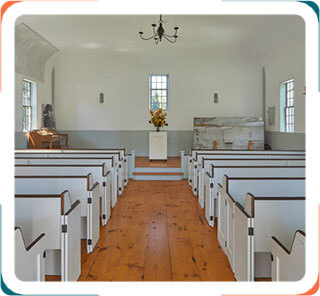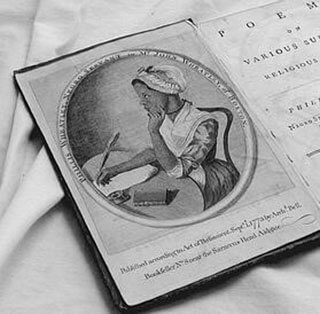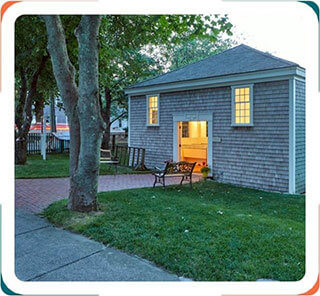 From the Museum of African American History and the Black Heritage Trail to exhibitions and events, here’s how you can celebrate Black History Month in Nantucket without much traveling.
From the Museum of African American History and the Black Heritage Trail to exhibitions and events, here’s how you can celebrate Black History Month in Nantucket without much traveling.
How Black History Month started in the U.S.
Since 1986, the month of February has been designated by Congress as Black History Month. Public Law 99-244 noted that February 1, 1986, would “mark the beginning of the sixtieth annual public and private salute to Black History.” Also known as African American Heritage Month, the month aims to celebrate and recognize the community’s achievements and crucial role in the history of the United States. Canada and the United Kingdom have since devoted a month to celebrating Black history as well.
 In 1976, President Gerald Ford officially recognized Black History Month and called upon the public to “seize the opportunity to honor the too-often neglected accomplishments of Black Americans in every endeavor throughout our history.” Black History Month in the past has endorsed a specific theme each year. The theme for Black History Month 2023 is “Black Resistance,” which highlighted the struggle Black Americans have endured over centuries and the power they have in the fight against racial inequality.
In 1976, President Gerald Ford officially recognized Black History Month and called upon the public to “seize the opportunity to honor the too-often neglected accomplishments of Black Americans in every endeavor throughout our history.” Black History Month in the past has endorsed a specific theme each year. The theme for Black History Month 2023 is “Black Resistance,” which highlighted the struggle Black Americans have endured over centuries and the power they have in the fight against racial inequality.
Historical buildings in Five Corners, Nantucket
In the late 1700s and the 1800s, Fiver Corners on Nantucket was a part of a neighborhood called New Guinea which indicated the African roots of the property owners. By 1850, New Guinea was home to two churches, a school, several shops, a dance hall, and an anti-slavery lending library. Today, only two buildings from that time remain—the African Meeting House and the Boston-Higginbotham House.
In 1744, weaver and formerly enslaved man Seneca Boston purchased land at 27 York Street and later built a house for his family. The house is a rare example of an 18th-century middle-class African-American family lifestyle and bears historical and cultural significance. Throughout its history, the house has mostly been owned by members of the Black community on Nantucket and until 1919, descendants of Seneca Boston.
In 1920, the house was purchased by Florence E. Clay Higginbotham, a cook originally from Virginia. Higginbotham named her house Mizpah, which was Hebrew for beacon or watchtower, and lived there until she passed away in 1972. The house is now owned by the Museum of African American History in Nantucket.
Today, the African Meeting House and Seneca Boston-Florence Higginbotham House are a part of the Museum of African American History.
Museum of African American History in Nantucket
With a mission of connecting colonial and early African American history and providing current explorations of race, the museum opened its doors and started holding exhibitions and public gatherings in 1963. Currently, home to four original African American buildings—African Meeting Houses, Abiel Smith School, Seneca Boston-Florence Higginbotham House, and Black Heritage Trails—the museum serves as a not-for-profit history institution ever since it was founded.
Nantucket’s African Meeting House
Constructed in 1806 and 1820, the two African Meeting Houses respectively served as a multipurpose structure for the African American community. While the meeting house in Boston is considered the oldest extant Black church building in America, the one in Nantucket is “the beating heart of the island’s Black community,” according to the Boston Globe.
In 1846, more than 100 years before the Brown v. Board of Education ruling made segregation in public schools unconstitutional, Nantucket’s schools were officially desegregated. During that time, the meeting house served as a one-room schoolhouse and a safe haven for escaped slaves. Nantucket’s Meeting House is the only public building constructed and occupied by African Americans in the 19th century that still remains today on the island.
Black Heritage Trail
 The Black Heritage Trail on Nantucket is crucial in providing snapshots of Nantucket Island’s African American history. The trail spans ten stops and is divided into two segments, Downtown and New Guinea.
The Black Heritage Trail on Nantucket is crucial in providing snapshots of Nantucket Island’s African American history. The trail spans ten stops and is divided into two segments, Downtown and New Guinea.
The first stop, Nantucket’s Historic Colored Cemetery, featured headstones of individuals from prominent black families: Boston, Crawford, Cooper, Grant, etc. The historic cemetery is also the burial place for island-born Eunice Ross, who was instrumental in the integration of the Nantucket school system.
Along the trail, visitors can find historically significant spots that capture the authentic stories of New Englanders of African Descent, stops like Five Corners, the Museum of African American History,the African Meeting House, Seneca Boston-Florence Higginbotham House, and the Unitarian Church. Seneca Boston’s son, captain Absalom Boston, was married at the church in 1814. On August 16, 1885, social reformer and leader of the abolitionist movement Frederick Douglas spoke at the Unitarian Church.
The last stop on the itinerary, the Whaling Museum, portrays Nantucket’s whaling history and the roles people of color played. Visitors can expect to find out more about this practice, including captain Absalom Boston’s voyage Industry that made him the first African-American captain to sail a whaleship with an all-black crew.
Events at the Museum of African American History
Throughout February the Museum of African American History will be sponsoring films and speakers at the African Meeting House.
For more information on Black History Month on Nantucket visit the Museum of African American History .
or read our story on the African American History Trail on Martha’s Vineyard.



